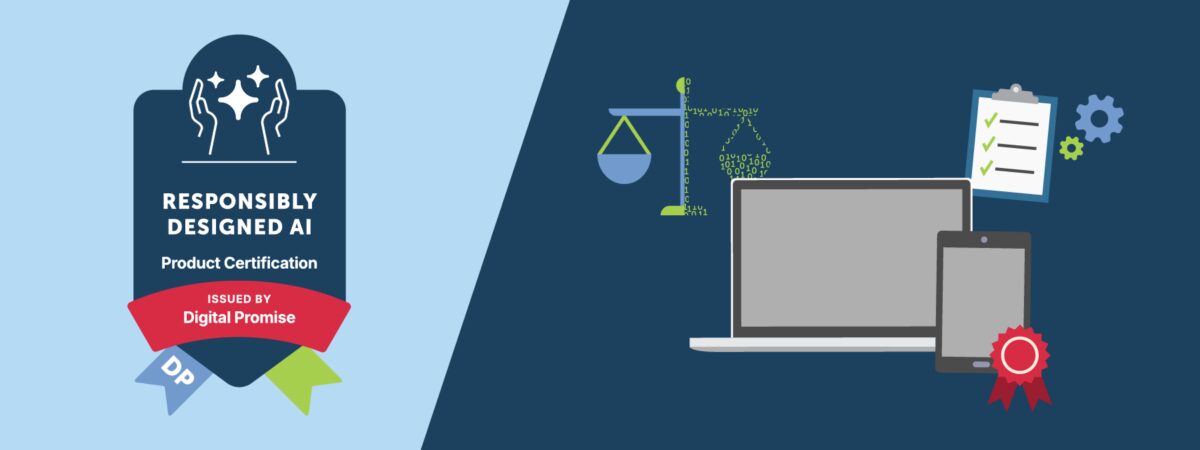This article was written and Published by GovTech— April 10th, 2025
The nonprofit Digital Promise launched the Responsibly Designed AI Product Certification this week to help school leaders select AI-driven ed-tech tools that meet specific requirements for student learning and safety.

The ed-tech nonprofit Digital Promise this week launched a certification program specially designed to vet artificial intelligence-based educational tools for data security, bias and transparency.
According to a recent news release, the goal of the Responsibly Designed AI certification from Digital Promise is to simplify the procurement process for school leaders, who are trying to choose from a glut of new tools and meet a growing demand for AI in the classroom. To receive the certification, ed-tech vendors will have to demonstrate that their product:
- clearly explains how it collects and uses data;
- provides a response plan for data breaches;
- uses inclusive development practices and monitors for algorithmic bias;
- specifies when and where AI comes into play; and
- allows educators to override AI output.
The news release said leaders in several districts across the U.S. are preparing to make the certification part of their procurement process. One of those leaders, Enterprise GenAI Manager Lorne Rodriguez of Chicago Public Schools, said he has experience with the certification already, as his district was part of a pilot program that worked to refine it.
“The Responsibly Designed AI certification provides a simple and transparent way for district leaders to validate that these tools are implementing AI in a way that is fair, unbiased and beneficial to all students, in addition to meeting high standards for data privacy and security,” Rodriguez said in a public statement.
In its news release, Digital Promise encouraged all school districts to use this and other third-party certifications to ease the burden of vetting vendors and ensuring high standards. The nonprofit offers templates to help school systems add questions about product certifications to their existing evaluation process.
There are now more than 150 product certifications available for ed-tech tools, according to Digital Promise’s website. The nonprofit itself directly issues six of them, and an array of other education nonprofits have their own, including 1EdTech, Project Unicorn and the Center for Applied Special Technology (CAST). These product certifications seek to verify that an ed-tech tool meets specific benchmarks in areas that range from data privacy and interoperability to efficacy and inclusive design.